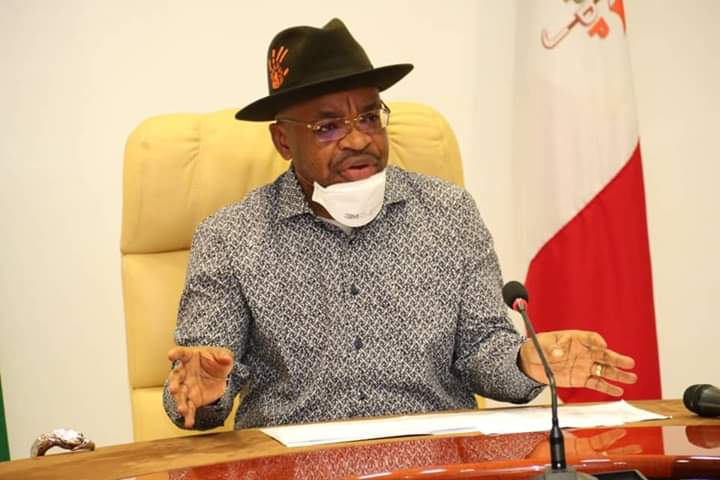Nigeria: Time for the grand design (3)
BY FELIX AJIOLA
Nigeria is in a state of deep crisis: the country suffers from a collapse of order leading to lawlessness. The founding fathers of Nigeria, namely: Nnamdi Azikwe, Tafawa Balewa and Obafemi Awolowo among others would weep in their graves that several decades after their struggle for independence, the nation is still in political limbo in spite of its enormous pool of diverse natural and human resources.
As it were, Nigeria is still searching for a perfect structure on which to base its system of government. It beats one’s imagination that in 2021, Nigerians are still looking not only for the right system to govern themselves, but the right temperament to live together. The relations between the various ethnic components have soured as a result of mistrust, sentiments, and nepotism which have become more pronounced under the incumbent administration. While the ongoing constitutional debates can be seen as an avenue for redressing some of the outstanding challenges in the nation, by creating a platform to raise fundamental issues which for years had impeded the growth, unity and development of the nation, nothing fundamental is likely to change at the end of the razzmatazz.
With quotidian killings, kidnappings, land grabbing, dispossessions, mass poverty, growing misery and food insecurity, Nigeria is far from counting any tangible progress as a nation. The recent spate of killings and banditry depicts a nation without a sense of history; a nation without rules, without moral imperatives, without minimum standard for unity, harmony and peace. Nigeria is indeed a house divided against itself. Ethnic tensions and animosities run high. Ethnic loyalties remain stronger than national loyalty. For instance, the non-Northern ethnic groups complain about dispossession and one form of domination or the other by the Hausa-Fulani, with the Igbo and Yoruba blaming their existential woes on political domination and overwhelming saturation of federal bureaucracy. The Niger-Delta people have been perennially complaining against being marginalized both economically and politically, while certain other minority groups are groaning under the yoke of religious, political, cultural and economic oppression. Ethnic sentiments and bellicosities now permeate national life and discourse in Nigeria. This explain why it has been argued that the country is currently on a keg of gunpowder. The relations of, as well as access to power in the country have been characterized by ethnic coloration and interpretation. The palpable nepotism and ethnic discrimination that characterize political appointments, executive positions, jobs, contracts, admission into schools and distribution of social amenities under the current political dispensation are alarming. This is such that it is arguable that no previous administration in the country dating back to the independence has demonstrated nepotism, opacity, perfidy and lack of concern as is being witnessed today.
Advertisement
The highly divisive intra-elite and inter-ethnic bifurcation to decide who gets what, how and where in the country among unscrupulous and unpatriotic elites masquerading as ethnic champions has shattered the hopes and aspirations of many genuine Nigerians. These imbalances, deprivations and inequalities constitute the causes of hostilities and animosities including the struggle for fair share of the national cake. The mobilization of ethnic solidarity for intra-elite political permutations, with the concomitant hatred and disgust it has bred among the peasant class across ethnic divides, remain fundamental components of the myriads of issues to be address. The other enemies of the Nigerian state apart from ethnicity are individualism, greed and materialism of an acquisitive society, popularized by the thieving ruling elite. The parasitic political elite exploit ethnicity, religion and cultural differences to win popular support only to satisfy their greed. The present regime has not only failed in eliminating corruption as promised, it has gained the reputation of being the most corrupt political dispensation since 1960. It is no longer news that the regime has nourished the seed of corruption than any of its predecessors.
Ultimately, it is requisite that Nigeria retraces its steps backward to move forward. In retracing its steps towards redeeming the nation from existential calamity, certain proactive actions ought to be initiated to include: (1) refocusing key institutions for the transmission of values such as educational systems, community harmony, and family bond. (2) Political and fiscal reframing of the country’s geo-political architectonics that allows for more administrative freedom of the different ethnic nationalities. Admirably, this was the premise upon which Nigeria experienced rapid social, economic and political stability at independence. Instructively, Nigeria was a federation consisting of a federal government and three regional governments at independence.
The regional governments subsequently became four with the introduction of the Mid-West. As a newly independent nation, it had a parliamentary system of government, a legacy of its colonial past, with a bi-cameral legislature and operated a multi-party democratic system. Given that a republican constitution did not emerge until 1963, the Nigerian state was headed by a Governor-General, a considerably ceremonial office, with the Prime Minister as the pragmatic head of government, appointed from the dominant political party. Although the Governor- General was the head of state, he could only act on the advice of the Prime-Minister. In the regions, the situation was the same. There was a leader of government. The region was bi-cameral, having a House of Assembly and House of Chiefs. The regions also had their own police force and autonomy to manage their embedded resources.
Advertisement
Given the considerable social coherence and development recorded at independence, it is desirable that, for there to be a unity of purpose, the country revisits 1963 republican constitution, with the creation of additional middle-belt, northwest, and northeast regions. The federal structure has to be recognized as crucial in the integration and development of the Nigerian state. As a recognition of its the cultural diversity, the economic and political autonomy of the various regions ought to be guaranteed and protected. More importantly, the provision of adequate security to protect the lives and properties of |Nigerians must advance beyond rhetoric to build the citizenry’s trust in the government and foster unity among belligerent groups in the nation. It seems to me that the ultimate focus of government action on the ethnic question remains the redressing of fears of ethnic political domination rather than some threats of combating secessionists aggressively. The lopsided posture of the Presidency in favor of a particular ethnic group, in my opinion, is the root of several agitations for self-determination in the country.
Moreover, Nigerians have realized now that the current constitutional framework can no longer guarantee their safety, equity and inclusion in the national scheme of things. The present government must prioritize the need to restructure Nigeria and reassure all Nigerians, irrespective of ethnic, regional or religious background, of unhindered security, equal opportunity and self-dignity. Given the diversity of the polity, only principled, selfless, educated, patriotic, and nationalistic leaders should subsequently occupy any position in the political space. In the meantime, the central government must remain the glue that binds the federating states. It can achieve this through fairness of its actions, especially appointments, award of contracts, location of infrastructural development, among other privileges. Finally, it would be germane to have some provisions in the revised constitution from the ongoing constitutional amendment process that ensure that the predominance of persons from a few states, particular ethnic enclaves or other sectional groups is avoided in the composition of cabinets or appointment of persons to high offices in the country.
Ajiola, a lecturer in the Department of History & Strategic Studies at the University of Lagos, can be reached via Email: [email protected]
Advertisement
Add a comment






